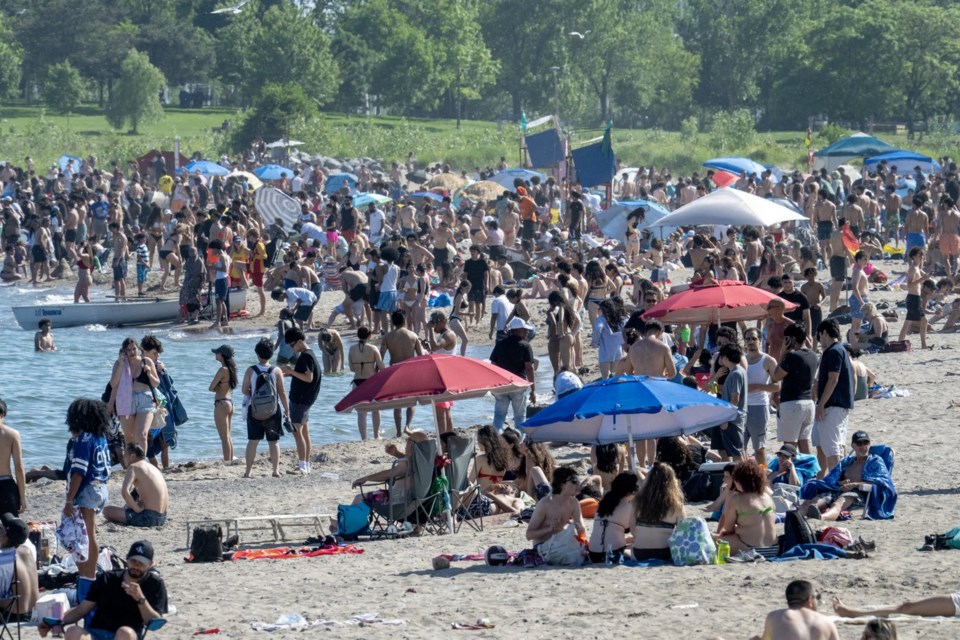TORONTO — Some Ontario beaches have been deemed unsafe for swimming during a heat wave in southern parts of the province, but experts say public beaches — especially those in urban areas — still provide crucial relief from blistering temperatures.
Toronto Public Health advised caution Tuesday at the popular Centre Island beach on the Toronto Islands, after water samples showed elevated E.coli bacteria counts.
In Ottawa, E.coli counts at Mooney's Bay Beach and Petrie East Bay were above the provincial threshold, according to data collected last week. Ottawa Public Health transitioned this year to testing waters once a week, whereas Toronto Public Health continues to sample water from beaches on a daily basis.
Public health authorities in Windsor and Essex County also posted E. coli warnings for several beaches in the region, based on testing done last week.
Gregary Ford, vice-president of Swim Drink Fish Canada, said reduced water quality is usually caused by intense precipitation that overloads sewage and wastewater systems, causing increased levels of bacteria to flow into nearby bodies of water.
"Generally, that's when we start to see these beach postings occur during the summer, particularly during these warm periods followed by intense storm events," he said.
Aside from checking water quality test results, Ford said it's best to avoid swimming 24 to 48 hours after rainfall to avoid wastewater runoff.
Ontario's water safety regulations are also some of the strictest in the world, with a threshold of 200 E.coli counts per 100 millilitres of water, Ford said.
Dr. Howard Shapiro, Toronto's associate medical officer of health, said Toronto Public Health uses an even more "stringent" standard of 100 E.coli counts per 100 millilitres in its water quality testing.
Despite the potential health risks, Shapiro said urban beaches are still a vital escape from heat waves and a way for people to cool down.
"Even if you look at the temperatures in the city, it'll be cooler by the lake than it will be in other parts, particularly in areas that have a lot of concrete," Shapiro said.
Meanwhile, a researcher at Ottawa's Carleton University is currently testing the waters at five locations along the Rideau River to dispel myths about river water quality and safety.
Banu Örmeci, the director of Carleton's Global Water Institute and an environmental engineering professor, said she's been collecting weekly samples from the Rideau River since the beginning of June, with each sample deemed safe by provincial standards.
Örmeci said she hopes her work can encourage the City of Ottawa to consider opening more supervised beaches along the Rideau River.
"Not everyone has the resources to go to cottages, and it is really important to create these recreational spaces in our neighbourhoods," she said.
This report by The Canadian Press was first published July 29, 2025.
Natasha Baldin, The Canadian Press




